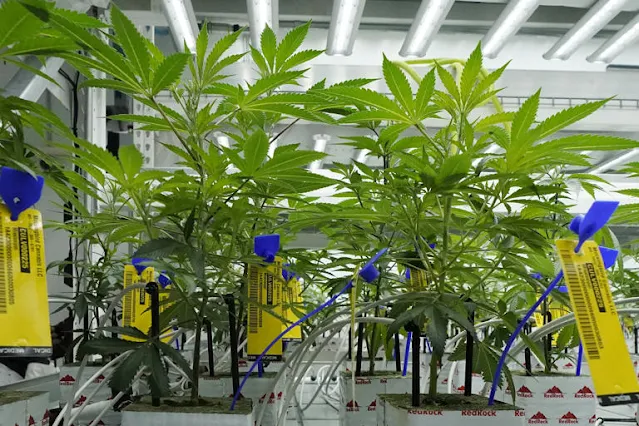As the U.S. government considers reclassifying marijuana to a less dangerous category, the impact might not be immediate in states that haven't legalized cannabis for medical or recreational use. However, advocates believe this federal shift could eventually influence state policymakers who are hesitant to embrace marijuana due to its federal illegality.
Matthew Schweich, executive director of the Marijuana Policy Project, notes that many state lawmakers are cautious about supporting marijuana-related bills due to federal laws. Reclassifying marijuana could ease these concerns and encourage more states to consider legalization measures.
The proposed change by the U.S. Drug Enforcement Administration (DEA) would move marijuana from a "Schedule I" drug (considered highly dangerous, like heroin and LSD) to a "Schedule III" drug (less tightly regulated, like ketamine and some steroids). While this change won't legalize marijuana federally, it could provide momentum for state-level legalization efforts.
In states like Florida, South Dakota, and Nebraska, where legalization measures are being considered, the federal reclassification could bolster support for these initiatives. In North Dakota, a former police officer turned attorney supporting a legalization initiative believes the reclassification could significantly benefit their campaign.
However, not everyone is convinced of the reclassification's impact. In states like Idaho, where there's strong opposition to marijuana, the federal change may not sway public opinion or policymaker decisions.
States that have already legalized marijuana, either for recreational or medical use, may not be significantly affected by the federal reclassification. But in states with limited access or where marijuana is entirely outlawed, the change could influence future discussions and legislation
For example, in Georgia, where medical marijuana is legal but dispensaries face federal restrictions, a reclassification could simplify the process of prescribing and dispensing cannabis products.
Despite these potential benefits, some state leaders, like Tennessee Senate Speaker Randy McNally, remain cautious and want further discussions before supporting any changes to state laws.
In states such as Kansas and South Carolina, law enforcement officials and some lawmakers are staunchly against any form of legalization, citing concerns about public safety and potential for increased drug use.
Overall, while the federal reclassification of marijuana could impact state-level discussions, the extent of its influence remains to be seen, with differing opinions and challenges existing across states.

